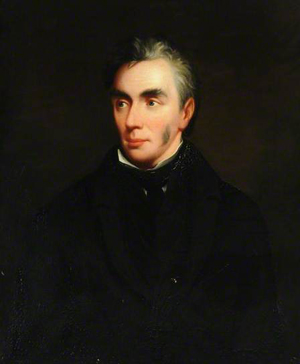Don and Rother
Ebenezer Elliot
Again we meet, where often we have met,
Dear Rother! native Don!
We meet again, to talk, with vain regret,
Of deedless aims! and years, remember'd yet—
The past and gone!
We meet again—perchance, to meet no more!
Oh, Rivers of the heart!
I hear a voice, unvoyaged billows o'er,
Which bids me hasten to their pathless shore,
And cries, "Depart!"
"Depart!" it cries. "Why linger on the stage
Where virtues are veil'd crimes?
Have I not read thee, even from youth to age?
Thou blotted book, with only one bright page!
Thy honest rhymes!
"Depart, pale Drone! What fruit-producing flower
Hast thou rear'd on the plain?
What useful moments count'st thou in thine hour?
What victim hast thou snatch'd from cruel power?
What tyrant slain?"
I will obey the power whom all obey.
Yes, Rivers of the heart!
O'er that blind deep, where morning casts no ray,
To cheer the oarless wanderer on his way,
I will depart.
But first, oh, Rivers of my childhood! first
My soul shall talk with you;
For on your banks my infant thoughts were nurs'd;
Here from the bud the spirit's petals burst,
When life was new.
Before my fingers learn'd to play with flowers,
My feet through flowers to stray ;
Ere my tongue lisp'd, amid your dewy bowers,
Its first glad hymn to mercy's sunny showers,
And air, and day;
When in my mother's arms, an infant frail,
Along your windings borne,
My blue eye caught your glimmer in the vale,
Where halcyons darted o'er your willows pale,
On wings like morn;
Ye saw my feelings round that mother grow,
Like green leaves round the root!
Then thought, with danger came, and flowered like woe!
But deeds, the fervent deeds that blush and glow,
Are Virtue's fruit.
From infancy to youth; from schoolboy days,
When life with stones and flowers
Sports, like the stream that with the sunbeam plays,
Till age counts fearfully his number'd days—
We waste our powers.
What doth the man, but what the child hath done?
We live, we talk, we move!
The best of all who prate beneath the sun;
The praised of all who smile, and talk, and run,
But live and love.
And if the best are like the useless gem
That shines in idle state;
Heavy, on those who crush the useful stem —
Heavy will fall the hand of God on them
Who live and hate!
Who bruise the weak, but bind no broken reed;
Who know not ruth nor shame;
Who, flowerless, ban the flower, to plant the weed;
And curse the toiling worms on whom they feed,
In God's great name!
Can I not crush them? No. Then, warning voice,
Teach me to welcome thee! I cannot crush them.
Let me, then rejoice
Because thou call'st; and make my fate my choice,—
Bound, and yet free.
Is it not love, to loathe the loveless? Yea,
'Tis love like God's to man!
The love of angels for their God!—Away!
Such love alone repayeth those who pay—
No other can.
They love not God, who do not hate man's foes,
With hatred—not like mine—
But deep as Hell, and blacker. To loathe those
Who blast the hope of freedom as it blows,
Is love divine.
Ah! many a blossom of the holy tree
Hath blossom'd but to fade!
Poland! the tears of nations flow for thee!
Thy bud of late redemption, Italy,
In dust is laid !
But hath no hope cheer'd man's despair since first
I trode thy margin, Don ?
Yea, mighty links of evil's chain are burst;
And they who curse, and will not bless, accurs'd,
Fall one by one.
Though Poland bleeds where Kosciusko died,
Hark! France and Belgium say,
To thrones crime-sceptred "Lo, you are defied!"
And at my birth, Redemption's angel cried,
"America!"
Then, Rivers, tell my mother earth, I come
To slumber on her breast!
For, lo, my drooping thoughts refuse to bloom!
My spirit shakes its fetters.
I crave room For rest, for rest.
Ebenezer Elliot's poems tend to move from observation of nature to social commentary.
